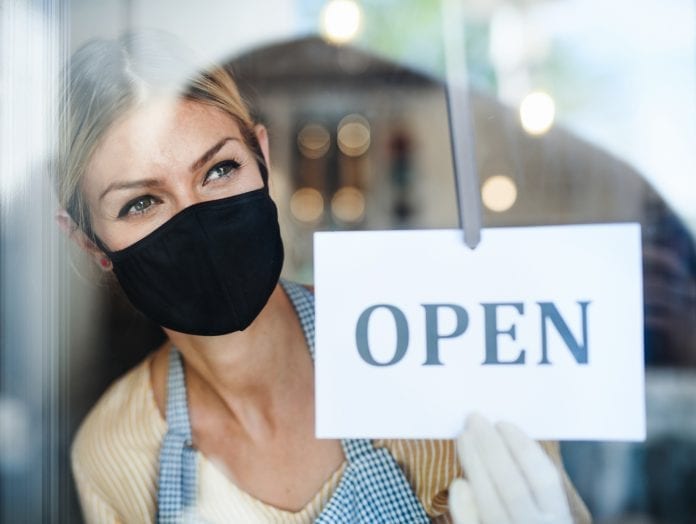It’s not a secret that many small businesses had to go through a lot of stress due to the global pandemic. And, considering the fact that Covid-19 is still present in some places of the world, we cannot really say that everything is back to normal yet. When it comes to business, the virus surely did a lot of financial damage to many companies, but, some business owners found great ways to cope with the stress. Today we’ll tell you all about it.
Some business owners have been in the game for a lot of years, some even for decades. But, some are pretty new and inexperienced, so the covid-19 crisis was the first crisis ever they had to face in their career. It’s not an easy thing to deal with something like this, but there are options. Let’s take a look at what you need to know.
1. Implementing work-from-home methods

Most businesses had to close their doors unless they were considered something that’s absolutely crucial in society, such as food stores or pharmacies. So, unless you were running a supermarket, chances are that you had to close while the lockdown lasted. The quarantine was really strict for at least two or three months non-stop, and in some countries it still lasts.
Two or three months without work is more than enough to bankrupt a small business, which is why a lot of smaller ones decided to continue working, but from home. Of course, supermarkets and other similar businesses cannot work from home, although most of them implemented free delivery methods for groceries and food, just to continue operating. But, if you are an IT company or a marketing agency, you can most-certainly continue working from home.
2. Following all safety protocols to re-open

Some businesses managed to implement all the required safety protocols so that they can re-open once more. One example are cafes and bars. These types of businesses had to close when the lockdown started, and as a result to that they lost a lot of revenue. But, then the governments across the world decided that they can re-open these places, but only if they implement all the required safety protocols.
As a result to this, some cafes and bars started placing tables at a three-meter distance one from another, and making very strict mask-wearing rules. Also, every table must have a few hand sanitizers, and you cannot pay with cash, only with credit cards. Honestly, these measures are more than enough to stop the spread of the virus, so it’s a good way for businesses to not bankrupt, while also allowing people to meet each other every once in a while in these difficult times.
3. Re-doing your finance plans

Finance is what suffered the most because of the covid-19 pandemic, and experts say that we are yet to feel the unpleasant effects of this crisis. As a result, smaller businesses are forced to re-do their financial plans for the next couple of months, or for as long as the pandemic lasts. This is one of the best advice that we can give you. Re-calculate your expenses, cut corners wherever you can, and make sure that you keep things to the bare minimal finance-wise until all this is sorted out.
One great thing that you can do as a smaller business is to hire a virtual receptionist. Since you cannot have a receptionist physically at your workplace due to the restrictions, you can continue operating but in a safer and more convenient way. Frontofficesolutions.net is a website where you can learn some more in-detail on this topic. Virtual receptionists are great because they allow you to continue working without breaking any safety rules or measures that your government implemented due to the crisis.
4. Utilizing partnerships

They say partnerships and relationships are what’s going to help you the most in your career as a businessman, and this is one of the scenarios that prove this to be true. Smaller businesses are now turning to their partners to form collaborations and help each other in times where help is needed the most. You never really know what kind of a support you’ll receive from someone who you helped a few years or months ago.
For example, food markets partnered with delivery companies to form a workflow which allows customers to get their groceries delivered to their own home, without cluttering the physical market locations and risking getting infected. Now this is just one of the examples, but there are numerous other cases such as this one. The best thing you can do is find out what works for your particular business type, and work from there.
5. Applying for compensations
Some governments offered compensations for smaller business that were on the brink of bankruptcy. If you are currently struggling financially, and your country allows for something like this, don’t hesitate to reach out for help. After all, some businesses are totally unable to continue operating, not even from home, so they have to be compensated somehow to keep their lights on.
6. Modifying your workflow methods
We already mentioned this but it’s so important that it deserves its own spot on this list. Modifying your workflow methods is the key to surviving the crisis caused by the pandemic. For example, private schools and academies started implementing online courses and lessons. This allows for the students to keep up with their knowledge without risking their health. If you are capable of doing something similar for your business, make it a priority. It can save you a lot of money.
7. Taking work online

Last but not least, if you can move your entire business on the internet until all this is sorted out, you’ll be able to survive it with only minimal expenses. If you are a graphics designer for example, and your agency operated in a way that invited customers over for consulting, you can transfer all of that online instead. Implement online consultations with a screen-share software and so on. It’s possible if you plan it well enough.









